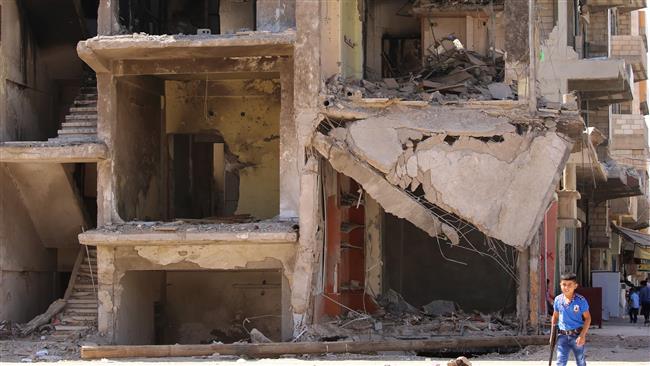
RNA - "Foolish Western attempts" to reshape the Middle East have brought nothing but "waves of chaos and violence", said the Russia's Foreign Intelligence Service director at the VI Moscow Conference on International Security, Sputnik reported.
"This region has never been stable, but it has recently become a hostage to someone else's geopolitical game. Foolish Western attempts to reshape the particularities of Afghanistan, Iraq, Libya, Iran based on their own templates have not led to anything but waves of chaos and violence," Naryshkin said.
Hopes for improved anti-terrorism cooperation between countries are not yet coming true, Naryshkin said.
"Many believed that common sense would finally prevail and the countries would together, on the basis of mutual respect and trust, move toward resolving regional conflicts and seek answers to such challenges as international terrorism. These hopes are not yet met," he said.
Afghanistan is in a state of political and social turmoil, with government forces fighting the continuing Taliban insurgency. The instability has persisted in the country since the 2001 US-led invasion to defeat the Taliban and al-Qaeda in the wake of the 9/11 attacks in the United States.
The lack of control and instability turned the country into home to the largest opium poppy production and distribution network in the world.
The US deployment of a mass ordnance bomb in Afghanistan is an example of Washington's uncoordinated show of force, Naryshkin said.
"Everything we are witnessing is a fact of a show of force not coordinated with anyone, like the explosion of a heavy-duty bomb in Afghanistan," he said.
In case the US MOAB blast in Afghanistan was intended to combat ISIL, it will not have the necessary impact on the group, Naryshkin noted casting doubt on the aim of this US move.
On April 13, US military dropped the 22,000-pound GBU-43 MOAB bomb in Afghanistan’s Nangarhar province targeting a tunnel complex used by ISIL, according to US Central Command. The MOAB, dubbed the "Mother of All Bombs," is the US largest non-nuclear bomb which had never been used in combat before.
Libya has been in a state of turmoil since 2011, when a civil war broke out in the country and long-standing leader Muammar Gaddafi was overthrown, and the country was contested by two rival governments: the internationally-recognized Council of Deputies based in Tobruk and the Tripoli-based General National Congress.
In March 2011, several NATO states, including France, launched a military intervention in Libya aimed at ending all attacks against the civilians and establishing a ceasefire. Then-President of France Nicolas Sarkozy played an important part in promoting the EU sanctions against Gaddafi and urging for the intervention.
After the 2003 US invasion toppled Iraqi leader Saddam Hussein, the country has been engulfed in ongoing violence. Large ares of Iraq are currently controlled by the ISIL group.
847/940